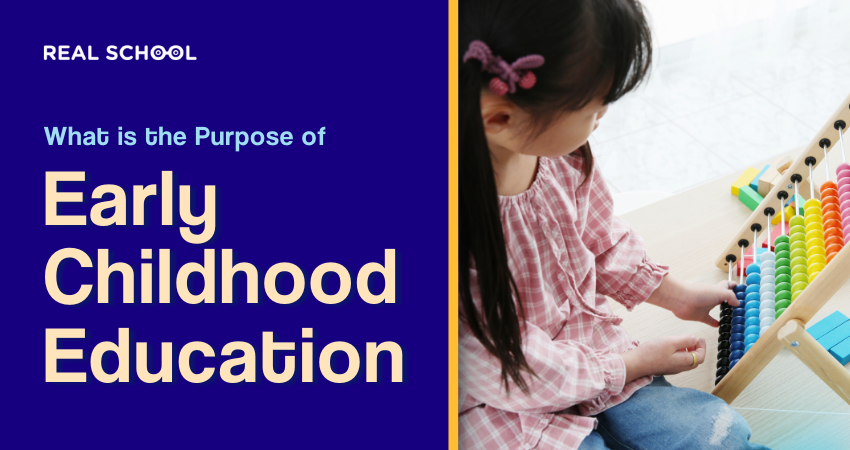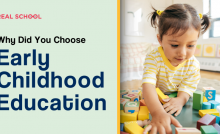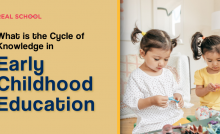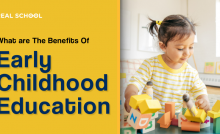What Is The Purpose Of Early Childhood Education


Early childhood education, also known as ECE, is critical in molding the lives of young children. It is more than just a prelude to formal schooling; it is a foundational period in which children learn the skills, information, and attitudes that will lead them throughout their lives. We will delve into the multifarious purpose of early childhood education in this comprehensive examination, revealing why it is regarded as one of the most critical stages in a child’s development.
A Time of Tremendous Growth
The early years, which normally last from birth until about the age of eight, are a time of incredible growth and development. During this formative period, youngsters acquire knowledge and experiences that will have an indelible impact on their future.
The Purpose of Early Childhood Education
Foundation for Lifelong Learning
One of the primary goals of early childhood education is to lay a sturdy foundation for a child’s lifelong learning journey. It imparts the fundamental skills and a thirst for knowledge that will accompany them throughout their educational odyssey and beyond. ECE instills in children the belief that learning is not a chore but a delightful endeavor.
Holistic Development
Early childhood education recognizes that children are not one-dimensional beings; they are complex individuals with physical, emotional, social, and cognitive needs. Therefore, the purpose of ECE is to address every facet of their development, creating well-rounded individuals who are better prepared for the complexities of adulthood.
Social and Emotional Skills
As children enter the world of early childhood education, they are not just learning numbers and letters; they are acquiring invaluable social and emotional skills. In a nurturing and supportive environment, they learn the art of empathy, the power of effective communication, and the ability to regulate their emotions. These skills are the building blocks of healthy relationships and emotional intelligence.
Preparation for School
Early childhood education serves as a bridge between home life and formal schooling. It equips children with basic literacy, numeracy, and classroom etiquette, ensuring they enter the world of academia confidently and enthusiastically. This smooth transition can make a profound difference in their academic trajectory.
Promotion of Creativity and Curiosity
Creativity and curiosity are the lifeblood of learning. Early childhood education fosters these attributes by encouraging children to explore, ask questions, and think independently. Through play-based learning, they are free to experiment, discover, and develop critical thinking skills, igniting a lifelong love for exploration and discovery.
The Role of Play in Early Childhood Education
Play, often dismissed as mere recreation, is a cornerstone of early childhood education. It is through play that children learn essential life skills. Play-based learning engages their natural curiosity and enthusiasm, making the process of learning not only effective but enjoyable. The structured play activities in ECE settings serve as vehicles for honing problem-solving skills, promoting cooperation, and nurturing imaginative thinking.
Also Read: Why Montessori Schools Are Ideal for Early Childhood Education?
Conclusion
The purpose of early childhood education serves a function that goes far beyond preparing children for formal school; it prepares them for life. It fosters a love of learning, fosters social and emotional abilities, and provides the groundwork for future academic and personal success. Early childhood education is a priceless investment in our children’s future and, as a result, in the overall prosperity of society. Know more – The Real School
FAQs
1. Why is early childhood education important?
Ans: Early childhood education is vital because it provides a solid foundation for a child’s lifelong learning journey and overall development. It equips children with essential skills and knowledge and fosters a love for learning.
2. What age group does early childhood education typically cater to?
Ans: Early childhood education often begins from infancy and continues until around eight years old, covering the period from birth to the early elementary years.
3. How does early childhood education benefit a child’s social development?
Ans: Early childhood education helps children develop social skills, such as empathy, communication, and cooperation, by providing opportunities for interaction with peers and adults in a supportive environment.
4. Is early childhood education only about academics?
Ans: No, early childhood education encompasses physical, emotional, social, and cognitive development. While it introduces basic academic skills, it also focuses on holistic growth and the nurturing of well-rounded individuals.
5. How can parents support early childhood education at home?
Ans: Parents can support early childhood education by reading to their children, engaging in educational activities, providing a loving and nurturing environment, and encouraging their child’s natural curiosity and creativity.
Recent Posts
What are the Advantages of Online Teaching at The Real School?
In the article -"What are the Advantages of Online Teaching at The Real School?" we…
What is the Full Form of School?: Unveiling the Acronym
The term "school" carries profound significance in the realm of education, representing more than just…
What is Math Full Form?: Cracking the Code
Mathematics, often referred to as "Math," is a subject that elicits various reactions from students…
What is Full Form of Homework?: Decoding Academics
Homework, an integral part of the academic journey, often raises questions about its purpose and…
What is Full Form of Teacher?: Demystifying Education
In the intricate tapestry of education, teachers stand as the pillars shaping the intellectual and…
What is Real Education?: Discovering Its Essence and Impact
The concept of real education is evolving, transcending traditional views that equate it solely with…


